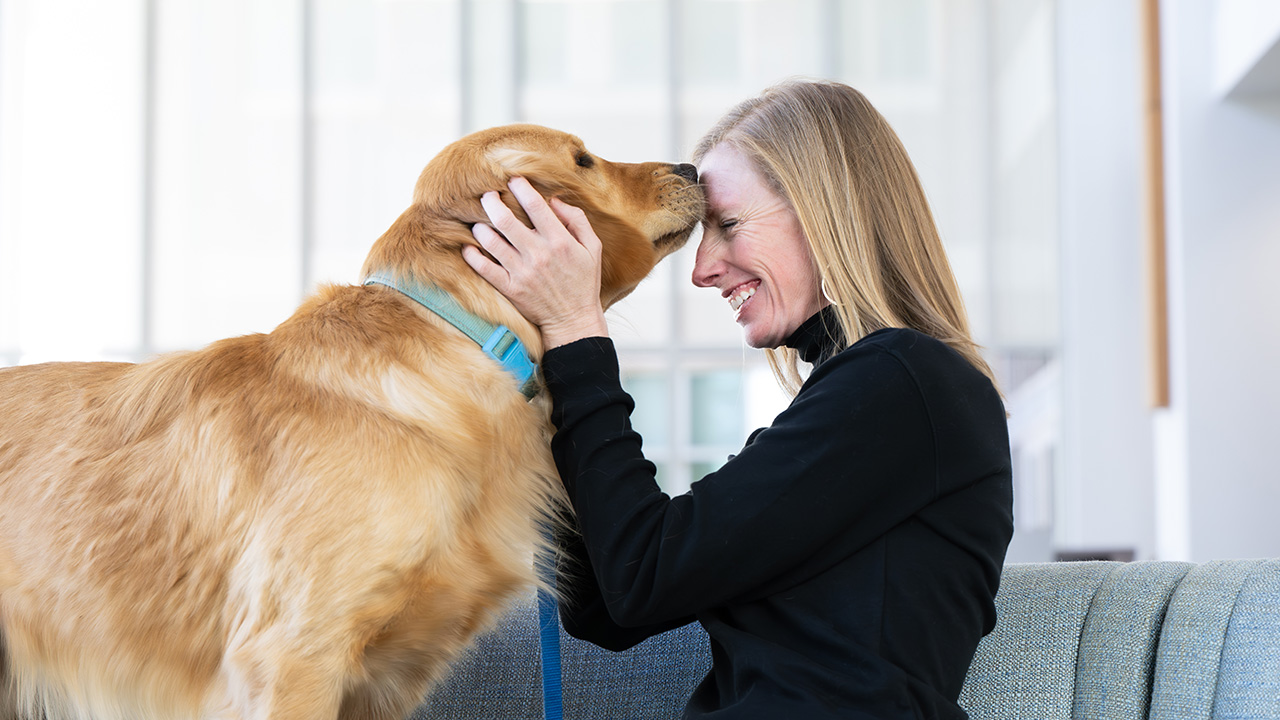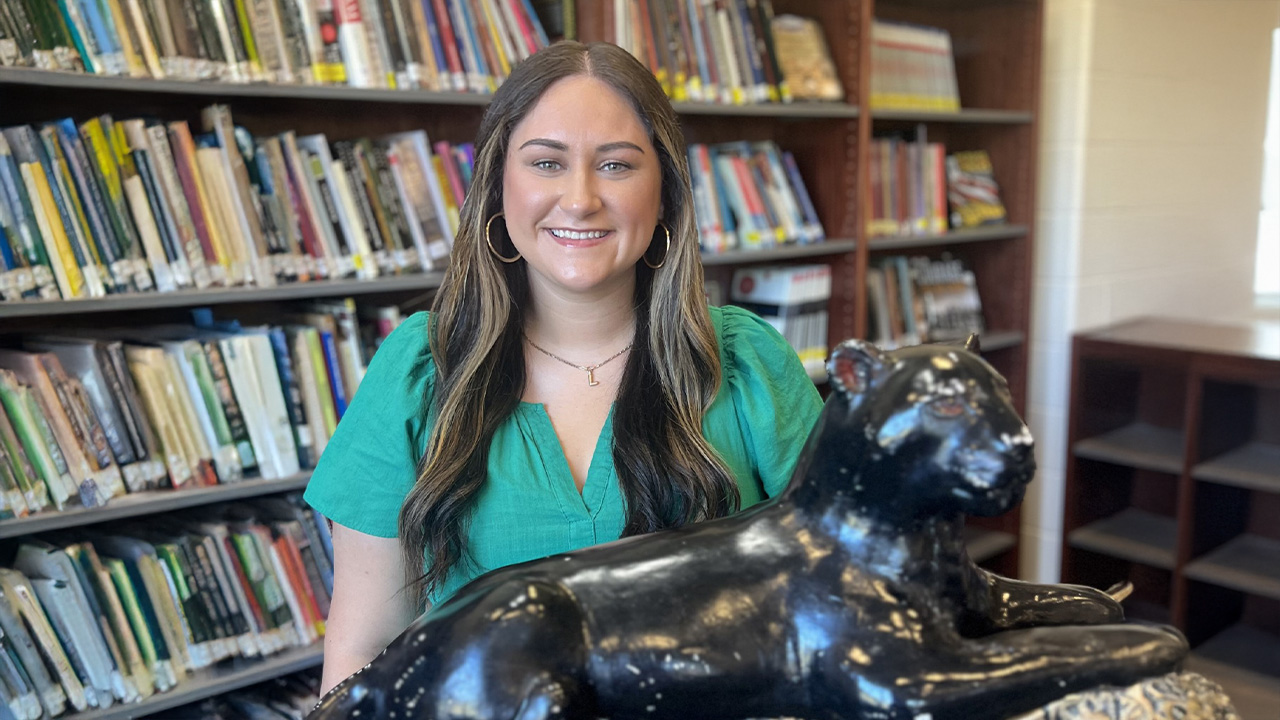content body
Auburn University faculty member Morgan Yordy’s research interests have changed over the years, but one thing has stayed the same: her resolve to research ways to comfort people who are struggling with physical or mental health issues.
“It doesn’t matter if it’s kids or seniors, dogs or people, at home or in the community; there’s always a way nurses can help,” Yordy said. “I won’t stop seeking out ways to help others, to be a voice for others, and I am grateful for a university that supports faculty in this exploration.”
An associate professor in the College of Nursing, Yordy is driven to study a wide range of health-related topics that include animal-assisted therapy, emotional and sensory regulation and interdisciplinary collaboration opportunities for school nurses.
Going to the dogs
An expert in animal-assisted interventions, Yordy currently serves as director of the college’s animal-assisted intervention program. When her husband passed away unexpectedly in late 2019, it was two dogs who helped Yordy and her children cope with their loss. That’s when she realized just how much dogs can help people heal from trauma.
“My babies were only 4, 7 and 9 years old,” she said. “We had our poodle and one of the college’s therapy dogs at home during that time, and it was then that I recognized what a godsend those dogs were. My children didn’t necessarily want to talk to me, but they could talk to the dogs.”
Since then, she’s studied the best applications for animal-assisted therapy and which purposeful interactions dogs should be used for in schools, like literacy programs and hygiene education. In the future, she wants to work with school systems to standardize school therapy dog programs and hopes to eventually add an additional canine to the college’s program to increase learning opportunities for students.
SOUND outreach
Another area Yordy studies is how to best help children and adults with emotional regulation challenges, especially during times of sensory overload. She spearheaded the college’s acquisition of a Sensory Activation Vehicle (SAV) and now helps to oversee SOUND (Sensory Outreach Under Nurse Direction), a program that deploys the SAV to campus and community events to offer attendees a respite from loud noises and bustling activity.
Auburn is the first university in the country to own a SAV, and Yordy said there are so many different populations who can benefit from it.
“It doesn’t matter if it’s kids or seniors, dogs or people, at home or in the community; there’s always a way nurses can help."
“We know more children and others are facing mental health challenges, beyond conditions like autism and ADHD. We have noticed over the last several years there have been so many children needing a space to calm down and take a deep breath and relax during exciting athletic events on campus,” Yordy said.
The SAV is a mobile sensory room filled with soft bean bag chairs, light displays, textured wall patterns, sensory activities and air conditioning. Since sensory needs can apply to a wide range of issues, including post-traumatic stress disorder, autism, dementia or stroke recovery, SOUND is helping many families enjoy events they may not have been able to attend in the past.
Yordy and colleagues Ann Lambert and Seth Perry, along with faculty from the College of Human Sciences’ Department of Human Development and Family Science, also take the SAV to local elementary schools.
“We teach children about sensory processing challenges their peers might face and how best to help their friends,” Yordy said. “Teaching kids to help other kids is the most rewarding experience.”
School counselor collab
When Yordy met the College of Education’s Malti Tuttle at new faculty orientation, they found they had a shared belief that interdisciplinary collaboration between school nurses and school counselors is vital to improving student outcomes.
So, they created the first school counselor and school nurse collaboration model and published their work in the “Journal of School Counseling.”
Along with their colleagues, Yordy and Tuttle are in their second year of administering the School Counseling Integrated Program (SCIP). Funded by an almost $3 million grant from the U.S. Department of Education, SCIP aims to bring more mental health services to rural schools by preparing Auburn graduate students studying counseling to work with school nurses and English for Speakers of Other Languages (ESOL) teachers.
Since school nurses are often the first school staff to identify students with behavioral health challenges, it makes sense to prepare them to work with guidance counselors and ESOL teachers to remove barriers to learning for students.
“I’m really excited about the work we’re doing in SCIP — I absolutely love teaching school counselor students about the role of the school nurse and ways to work together,” Yordy said. “Watching the ‘aha moments,’ you can just see the light bulb.
“I’m so grateful the College of Nursing has supported my growth in meaningful research. I’ve been able to explore what matters most to me, like finding strategies such as animal-assisted interventions and interdisciplinary collaboration, to not just help my own family but other families facing challenges that impact their physical and mental well-being.”









